Gardening is a delightful endeavor, bringing with it the joys of nurturing plants and watching them flourish. However, the presence of pesky pests can turn your green paradise into a battlefield.
Fear not! This guide explores 19 natural remedies that can help you reclaim your garden without the harsh chemicals. Discover practical, eco-friendly solutions that not only protect your plants but also enhance the overall health of your garden. Let’s dig in!
1. Garlic Spray
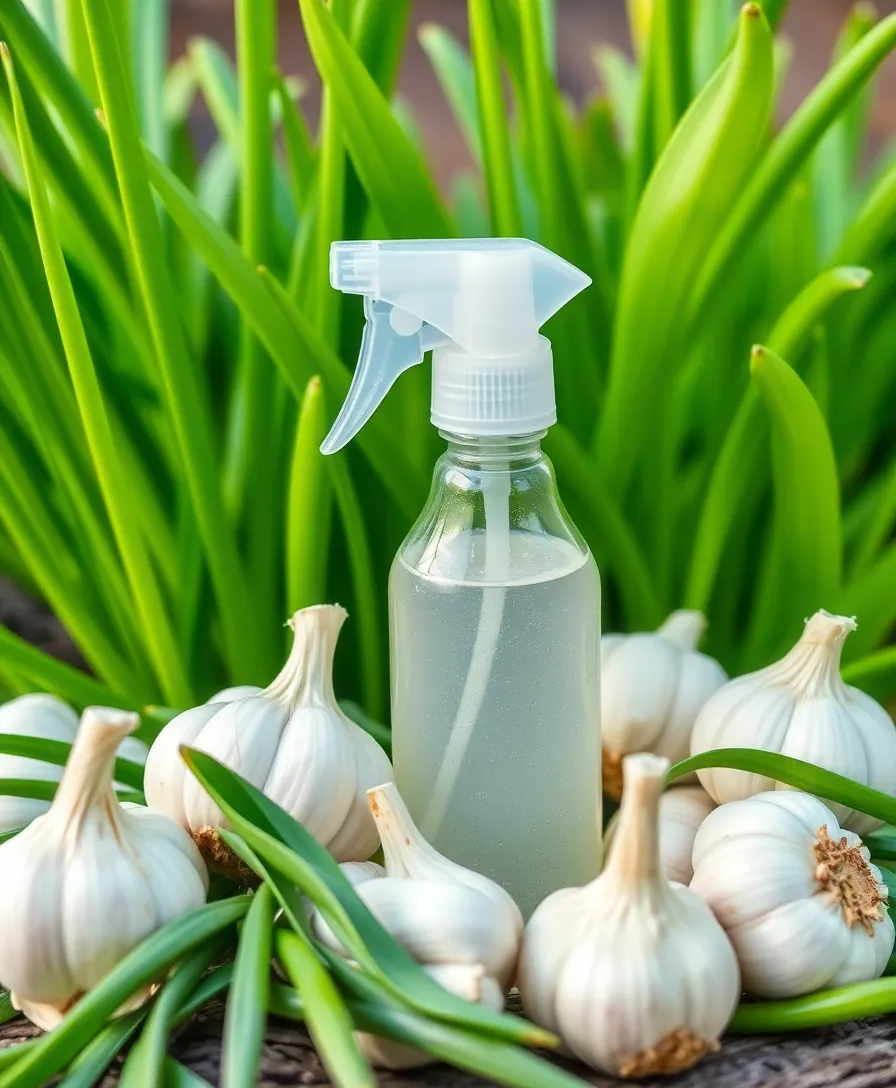
Garlic is not just a flavor enhancer; it’s a powerful natural pest deterrent! The strong scent of garlic can repel aphids, spider mites, and even whiteflies.
To make your own garlic spray, blend a few cloves of garlic with water, let it steep overnight, and strain the mixture. Spray it on affected plants, and enjoy the sight of pests retreating. This remedy is not only effective but also easy to prepare, making it a staple in your garden arsenal.
2. Neem Oil
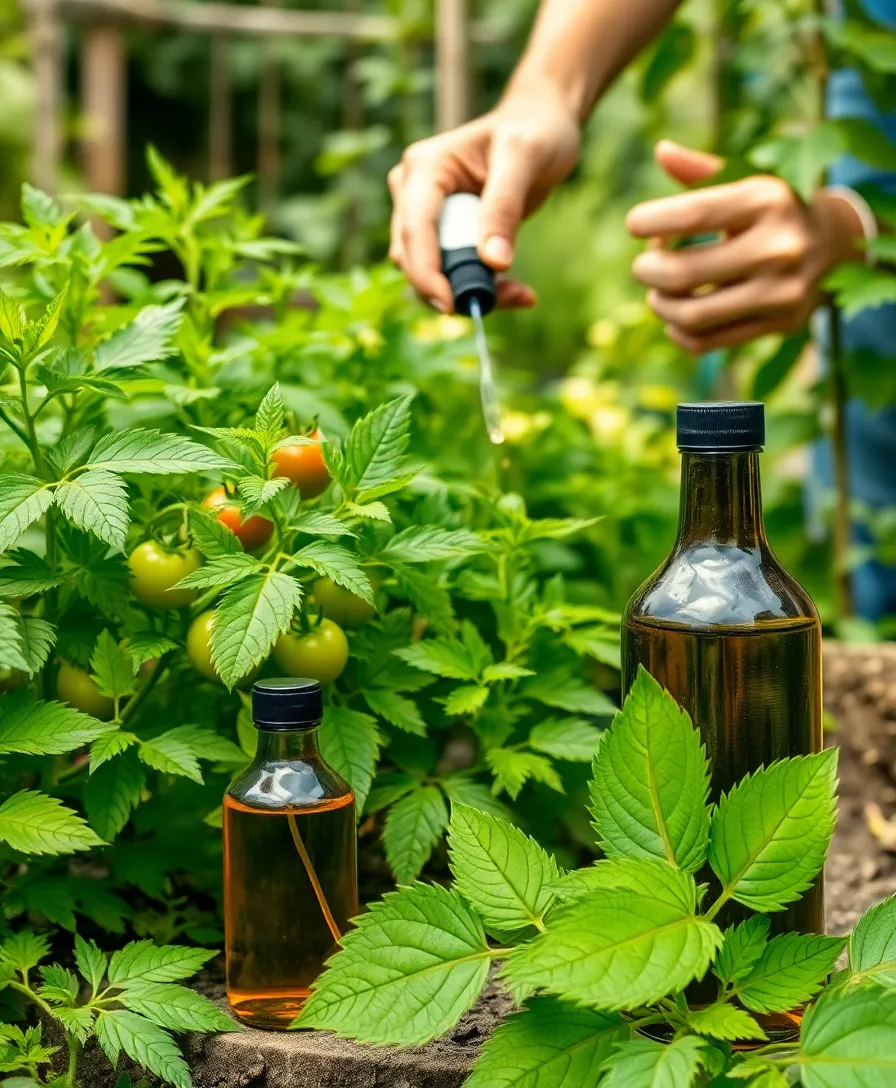
Derived from the seeds of the neem tree, neem oil is a fantastic organic solution for pest control. Its properties disrupt the life cycle of pests like aphids, mealybugs, and spider mites.
To use, mix neem oil with water and a few drops of dish soap to create an emulsifying solution. Spray it on your plants every couple of weeks for ongoing protection. Not only does it target pests, but it also nourishes your plants, making it a dual-purpose remedy!
3. Diatomaceous Earth
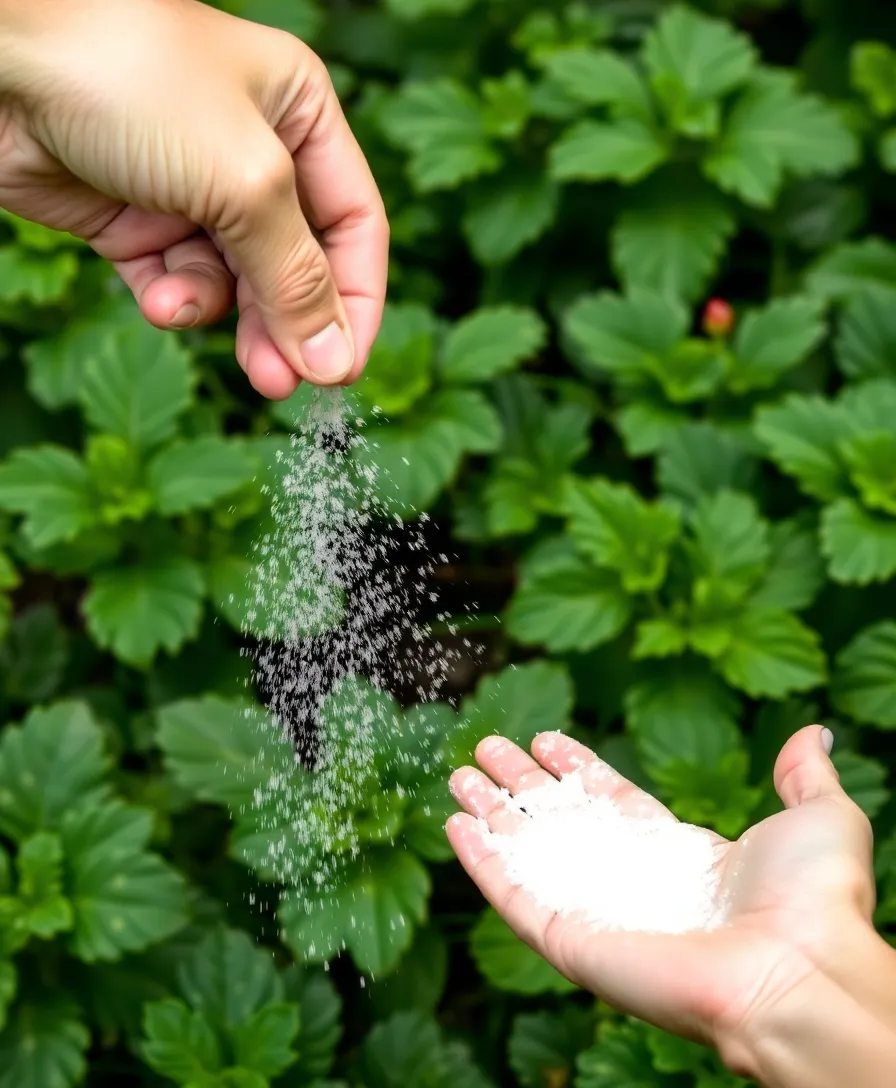
Diatomaceous earth (DE) is a fine powder made from the fossilized remains of tiny aquatic organisms called diatoms. This powerful substance is perfect for controlling soft-bodied insects like slugs and aphids.
Sprinkle DE around your plants or mix it with water to create a spray. When pests come into contact with it, the tiny particles pierce their exoskeletons, leading to dehydration. This eco-friendly remedy is safe for pets and beneficial insects, making it a fantastic choice for any garden.
4. Companion Planting

Companion planting is an ancient practice that involves growing different plants together for mutual benefits, including pest control. Certain plants can naturally repel pests that threaten your more vulnerable plants.
For example, planting marigolds near tomatoes helps deter nematodes and aphids. Research which plants work well together and create a harmonious garden ecosystem that not only looks good but is resilient against pests.
5. Soap Spray
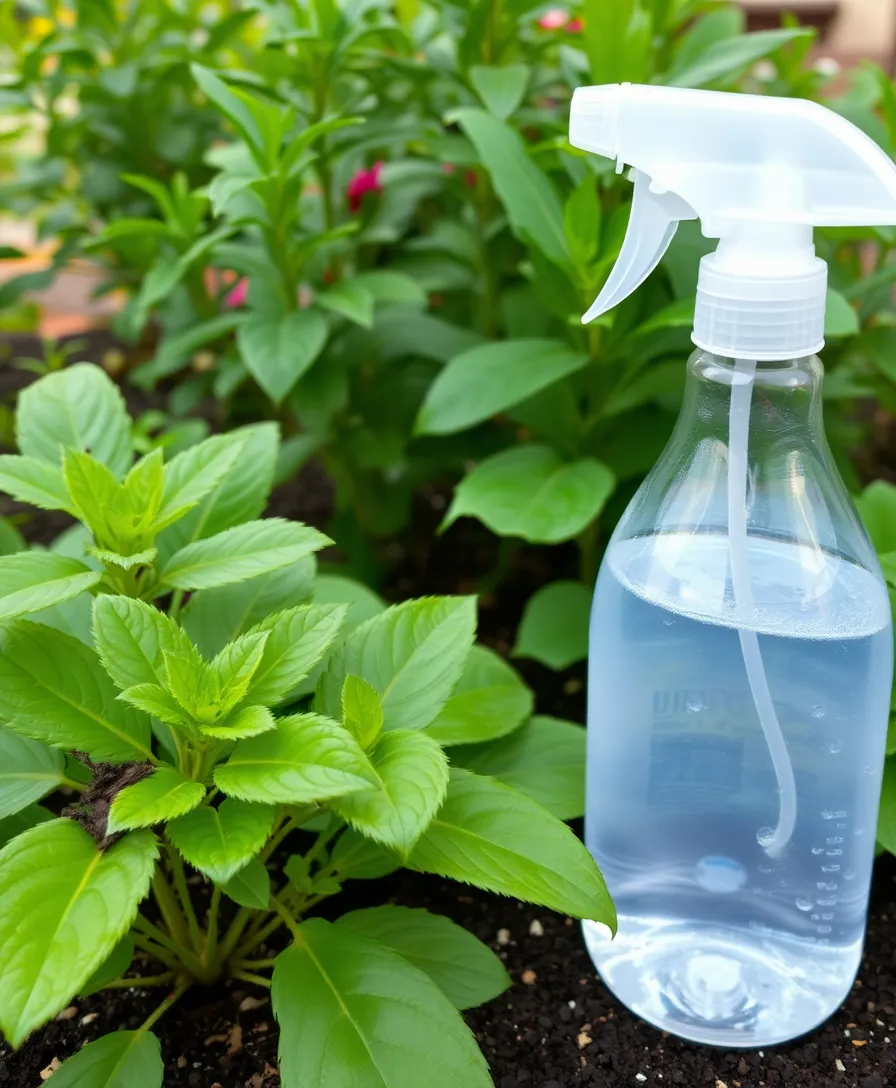
A simple yet effective remedy, soap spray works wonders against soft-bodied insects like aphids and spider mites.
Mix a few drops of liquid soap with water in a spray bottle and apply it directly on the pests. The soap suffocates them by breaking down their protective layers. This method is quick, cost-effective, and safe for most plants, making it a must-try for any gardener facing a pest invasion!
6. Chili Pepper Spray

Chili peppers are not just for spicing up your meals; they can also deter pests! The capsaicin in peppers acts as a natural repellent for many insects.
To create your chili pepper spray, blend a few peppers with water, strain the mixture, and add a drop of soap. Spray this solution on your plants to keep unwanted visitors at bay. This fiery remedy is not only effective but adds a bit of zest to your pest control routine!
7. Essential Oil Blends
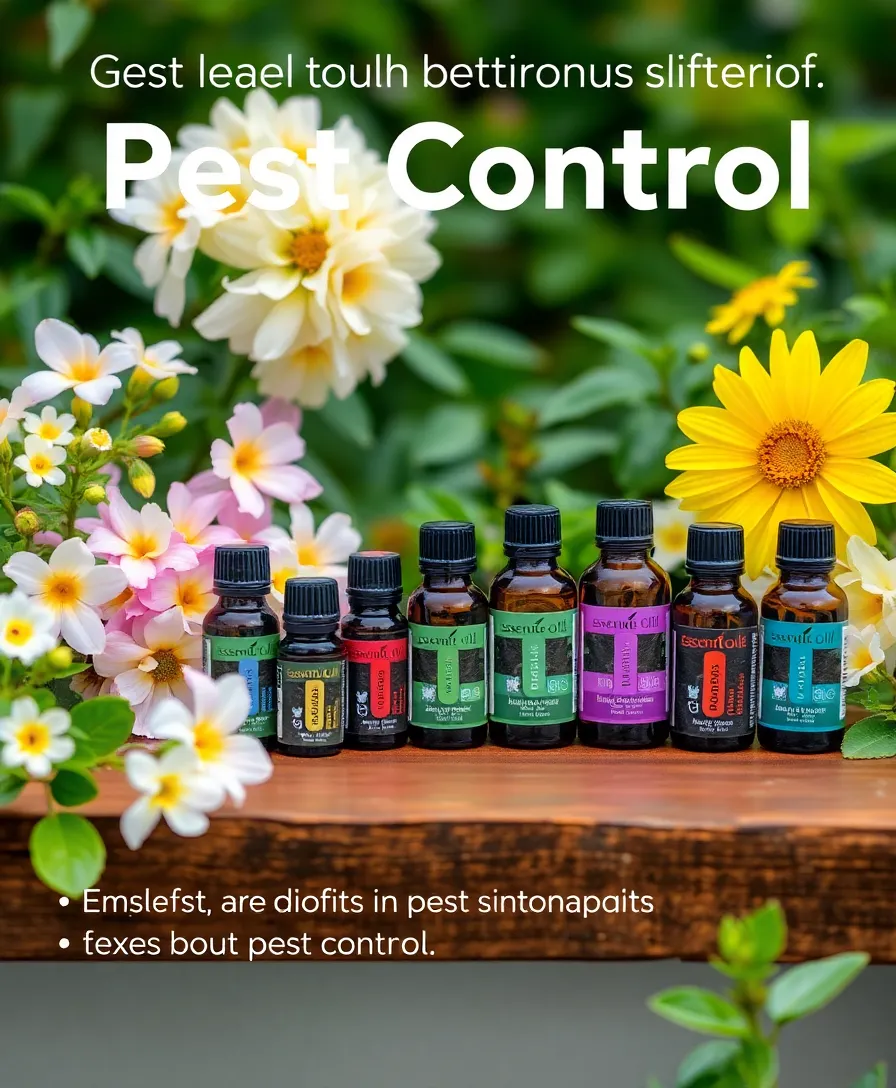
Essential oils are not just for aromatherapy; they can also be powerful allies in your garden. Oils like peppermint, lavender, and eucalyptus can repel various pests while adding delightful fragrances to your garden.
Mix a few drops of essential oil with water and spray it on your plants to create a protective barrier. Not only will your garden smell amazing, but you’ll also be keeping pests at bay naturally!
8. Beer Traps
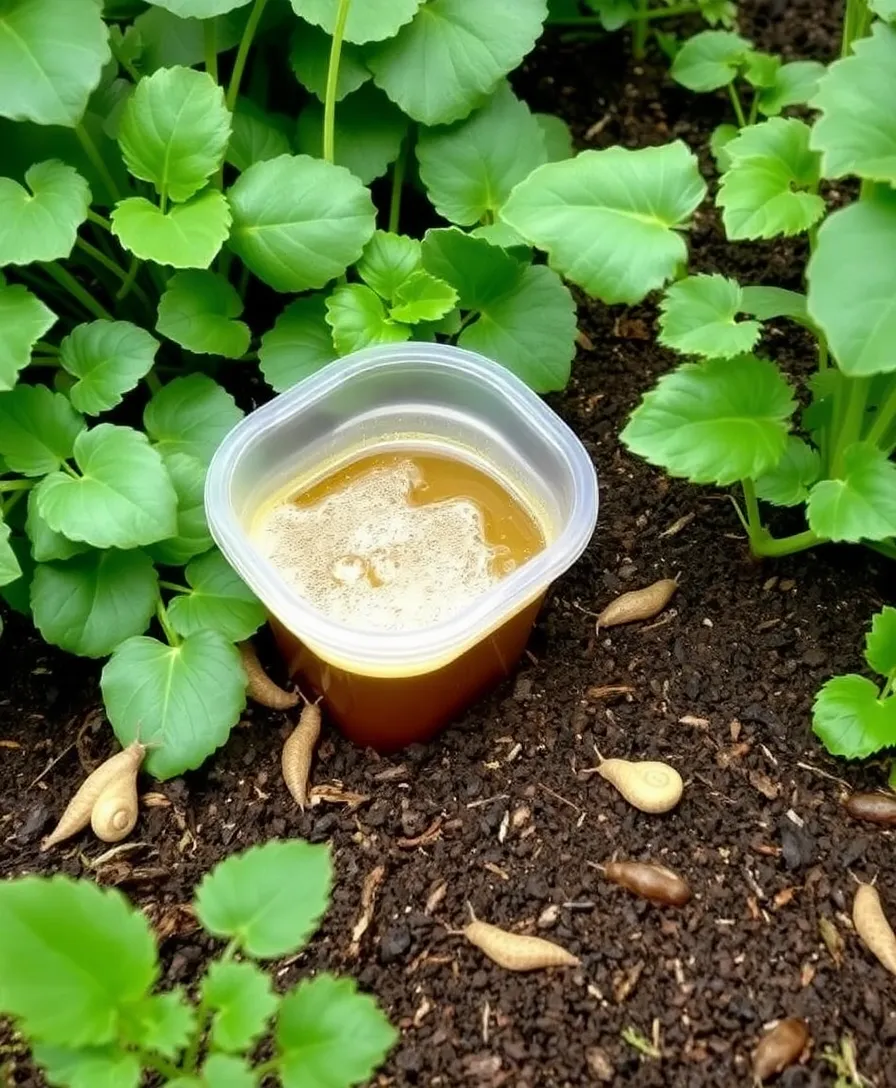
Beer traps are a clever way to lure and eliminate slugs and snails, which can wreak havoc on your garden.
Simply bury a shallow container in the ground and fill it with beer. The slugs will be attracted to the scent, fall in, and can’t escape. This fun and effective method not only helps control pest populations but also provides a quirky conversation starter among fellow gardeners!
9. Natural Predators

Encouraging natural predators in your garden can significantly reduce pest populations. Ladybugs, lacewings, and predatory wasps are all excellent natural pest controllers.
Create a welcoming environment for these beneficial insects by planting diverse flowers and avoiding harsh chemicals. This sustainable approach not only helps keep pests in check but also promotes biodiversity in your garden.
10. Coffee Grounds

Coffee grounds are not just great for your morning brew; they can also deter certain pests like snails and slugs. The caffeine in coffee is toxic to these pests, making it an effective barrier.
Sprinkle used coffee grounds around your plants or mix them into the soil to reap the benefits. This method is an excellent way to recycle your coffee waste while protecting your garden!
11. Vinegar Solutions

Vinegar is a household staple that can also serve as a natural herbicide and pest repellent. Its acidity can help deter ants and other pests when sprayed around your garden.
Mix equal parts of water and vinegar in a spray bottle and apply it to pest-infested areas. Just be cautious to avoid contact with your plants, as the acidic nature can harm them if used in excess. This quick solution is perfect for those pesky invaders!
12. Corn Gluten Meal

Corn gluten meal is a natural pre-emergent herbicide that can prevent weed growth while also deterring pests. This organic option is derived from the processing of corn and works wonders in preventing weed seeds from germinating.
To use, simply spread corn gluten meal on your garden soil before weeds start to sprout. This method not only protects your plants from competition but also aids in pest control, making it a two-in-one solution!
13. Cucumber Peels
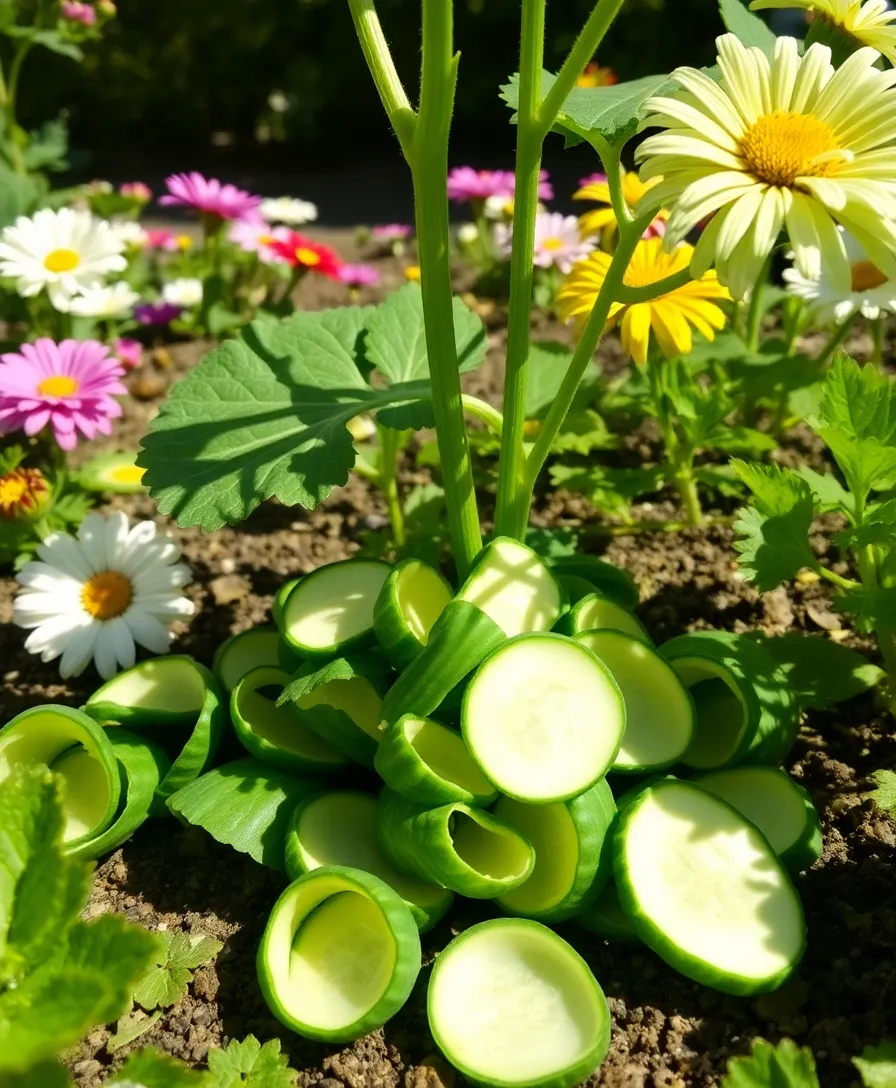
Cucumber peels are a surprising yet effective way to deter pests like ants and beetles. The scent released from cucumber skins is unappealing to many insects.
Simply scatter fresh cucumber peels around your plants to create a natural barrier. This method is not only eco-friendly but adds a fresh aroma to your garden, making it a delightful addition to your pest control efforts!
14. Essential Oil Candles

Candles infused with essential oils can create a beautiful ambiance while keeping pests away. Oils like citronella, lemon eucalyptus, and lavender can repel mosquitoes and other flying insects.
Place these candles around your garden or patio area to enjoy a pleasant scent while warding off unwanted guests. This method adds charm to your outdoor space and elevates your gardening experience!
15. Rubbing Alcohol
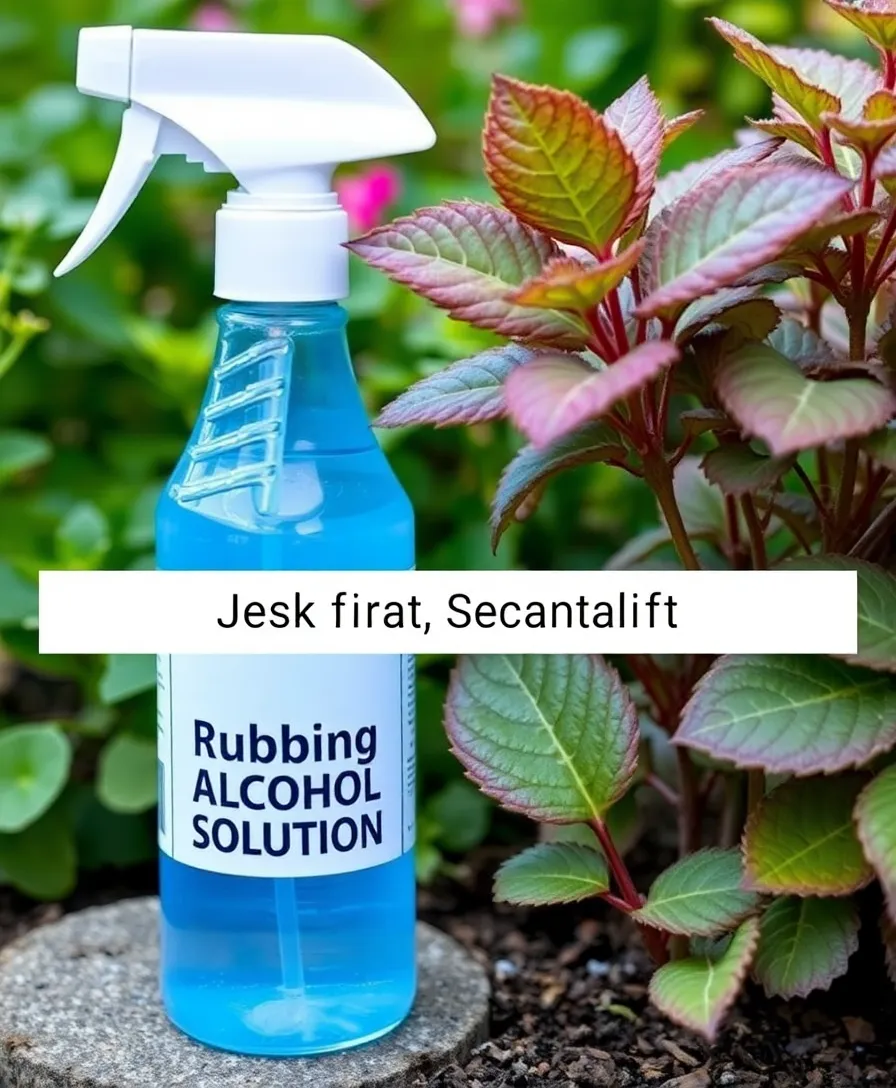
Rubbing alcohol is a potent solution for eradicating pests like spider mites and mealybugs. Its high alcohol content can effectively suffocate these pests upon contact.
Mix rubbing alcohol with water in a spray bottle and apply it directly to infested plants. This straightforward approach is not only effective but also quick, allowing you to tackle pest issues swiftly.
16. Citrus Peels

Citrus peels, especially from lemons and oranges, can deter unwanted pests due to their strong scent. The natural oils in the peels can repel ants, aphids, and other common garden nuisances.
Simply scatter fresh citrus peels around your plants or create a citrus-infused water spray for a delightful and effective pest control method. This remedy not only smells great but also utilizes kitchen scraps in a sustainable way!
17. Eggshells
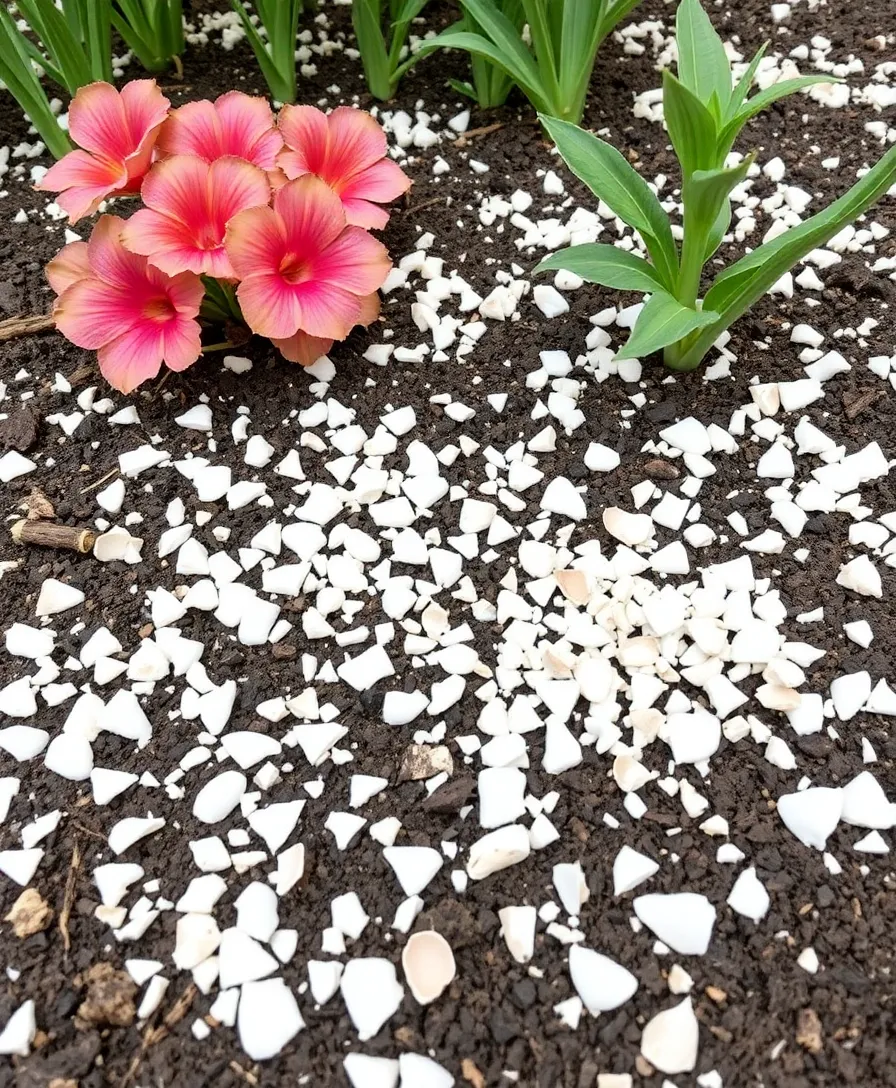
Crushed eggshells can serve as a natural deterrent for slugs and snails, as the sharp edges create an uncomfortable barrier for these pests.
Rinse and dry your eggshells, then crush them into small pieces and scatter them around your plants. This method not only protects your garden but also recycles kitchen waste, enhancing your eco-friendly gardening practices.
18. Salt Barriers
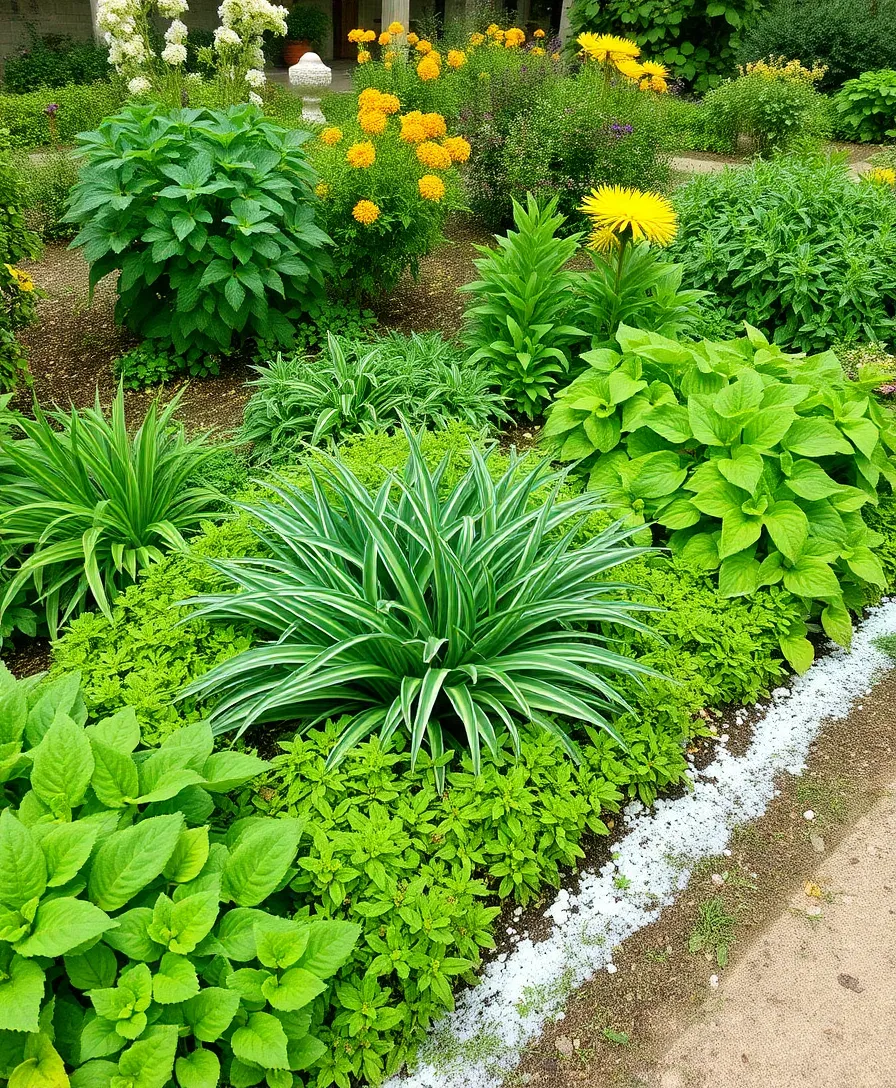
Salt can act as a natural pest deterrent when used wisely. Sprinkling salt around the perimeter of your garden can create a barrier that slugs and snails are reluctant to cross.
However, caution is essential, as excessive salt can harm your plants. Use this method sparingly to protect your garden without damaging your beloved flora.
19. Planting Mint
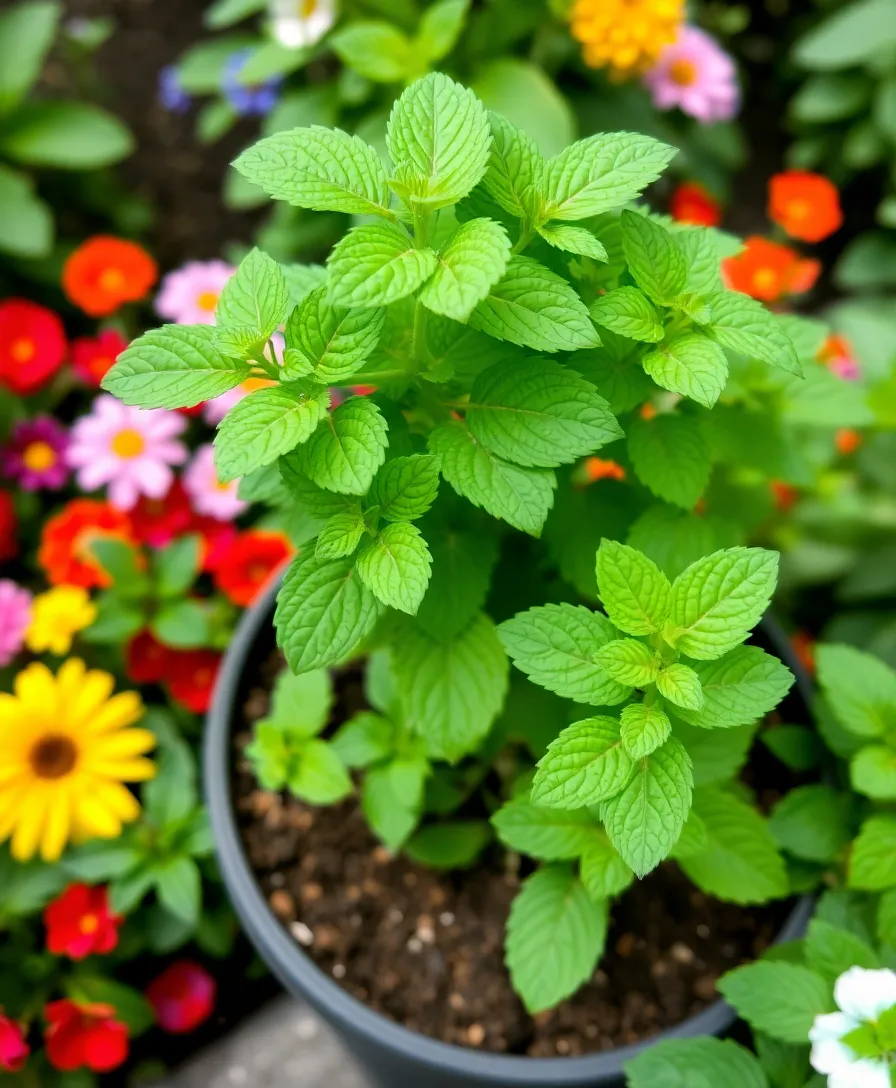
Mint is more than just a refreshing herb for your kitchen; it can effectively repel pests like ants, aphids, and even mice. The strong scent of mint is unappealing to many insects, making it a perfect plant for natural pest control.
Plant mint in pots or designated areas in your garden, and watch as it works its magic. This method not only keeps pests away but also provides fresh mint for your culinary endeavors!
Conclusion
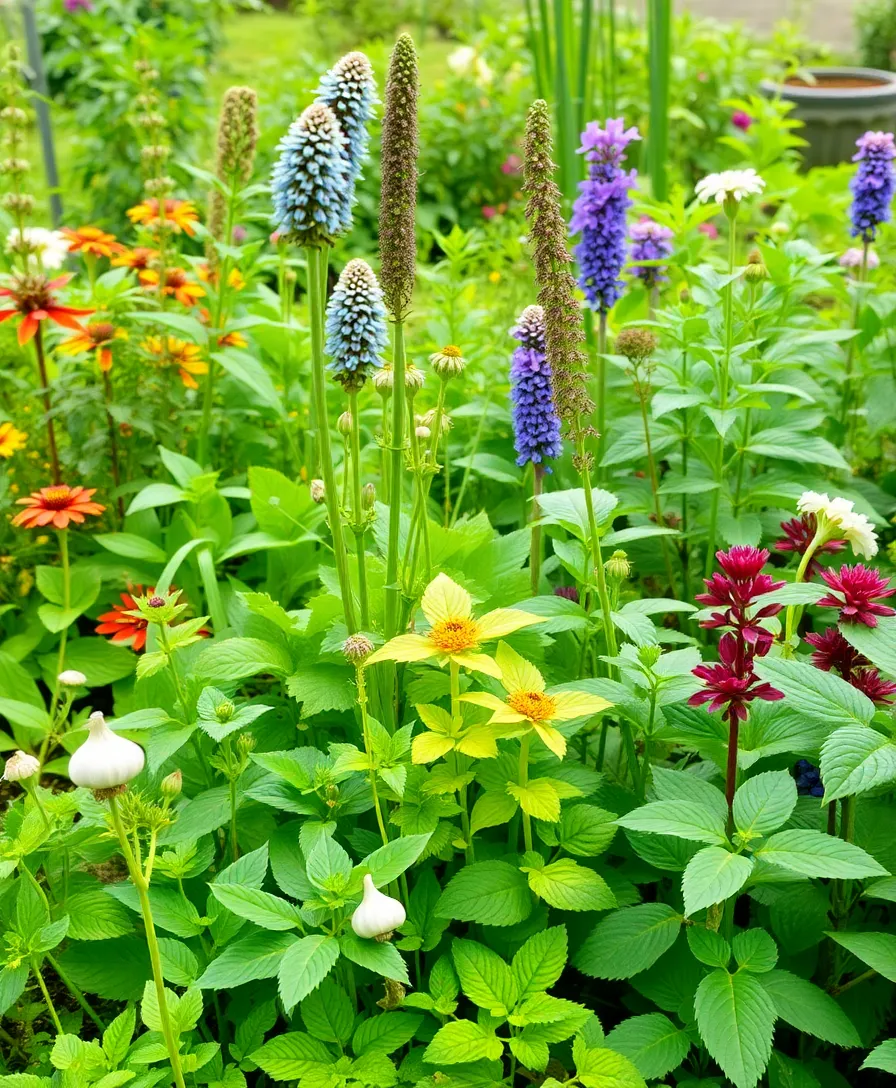
Natural remedies for pest control can transform your garden into a thriving sanctuary free from harmful chemicals. By incorporating these 19 methods, you can protect your plants while promoting a healthier ecosystem.
Embrace the beauty of nature and the power of natural solutions to enjoy a flourishing garden for years to come!



